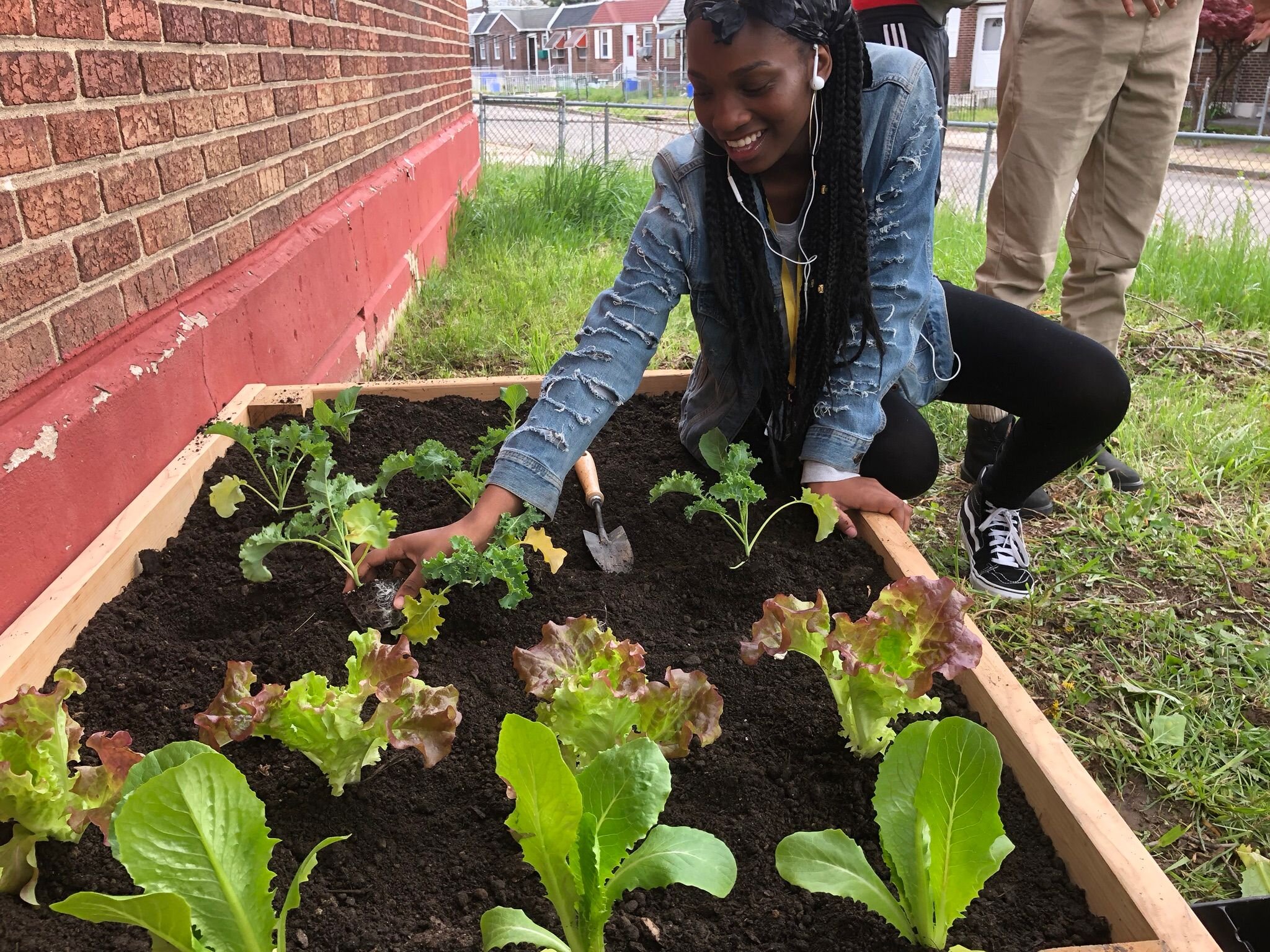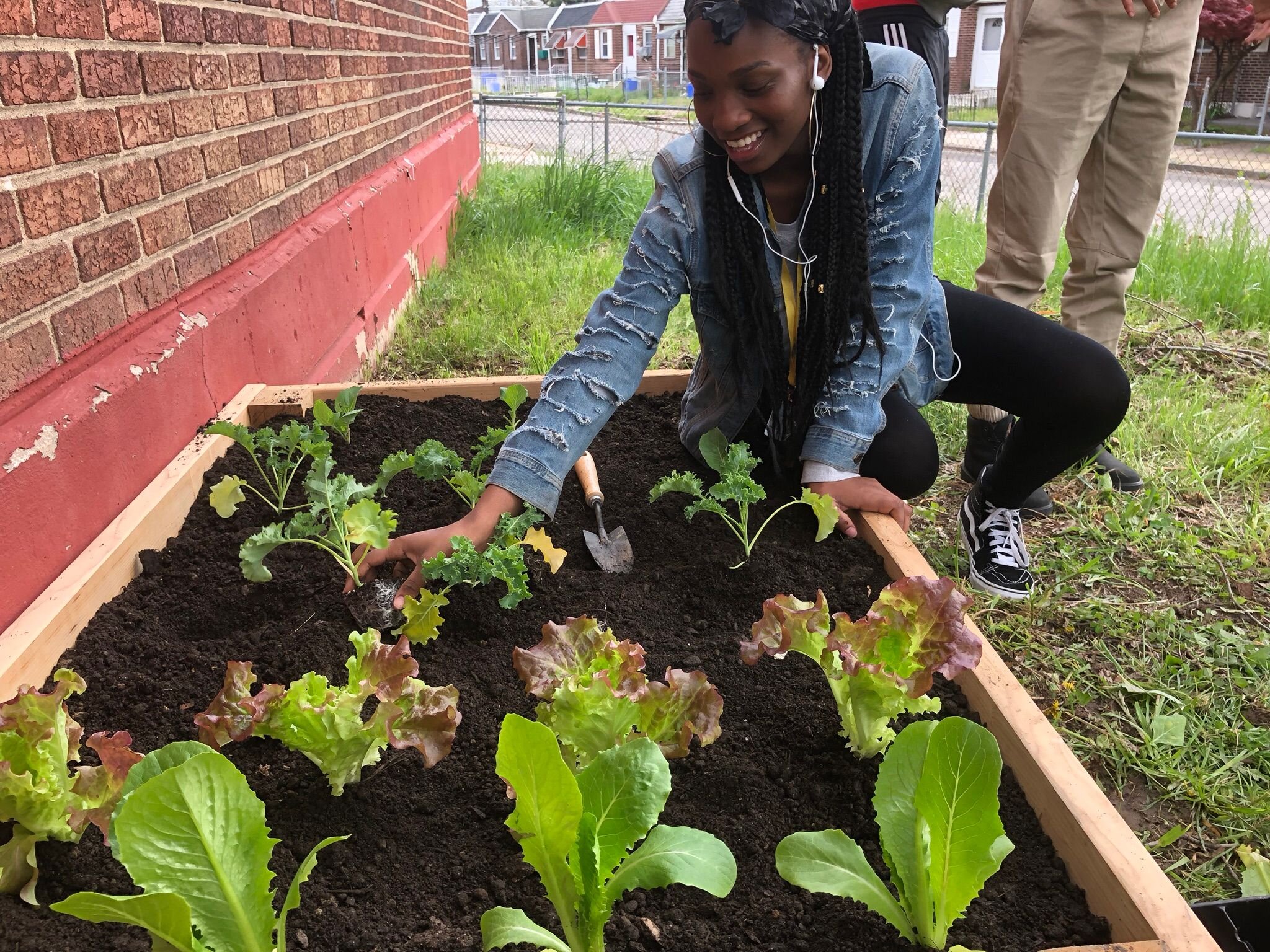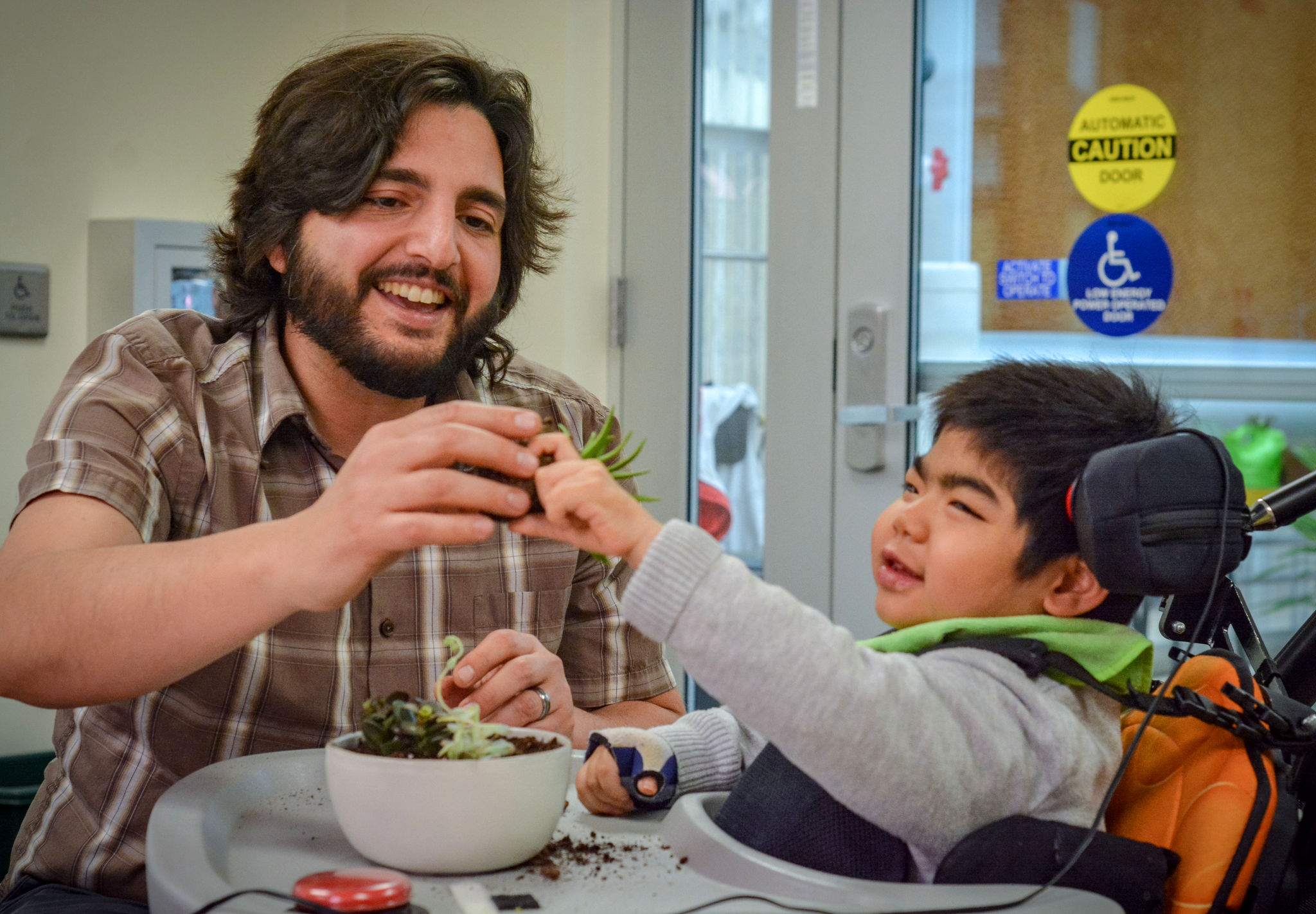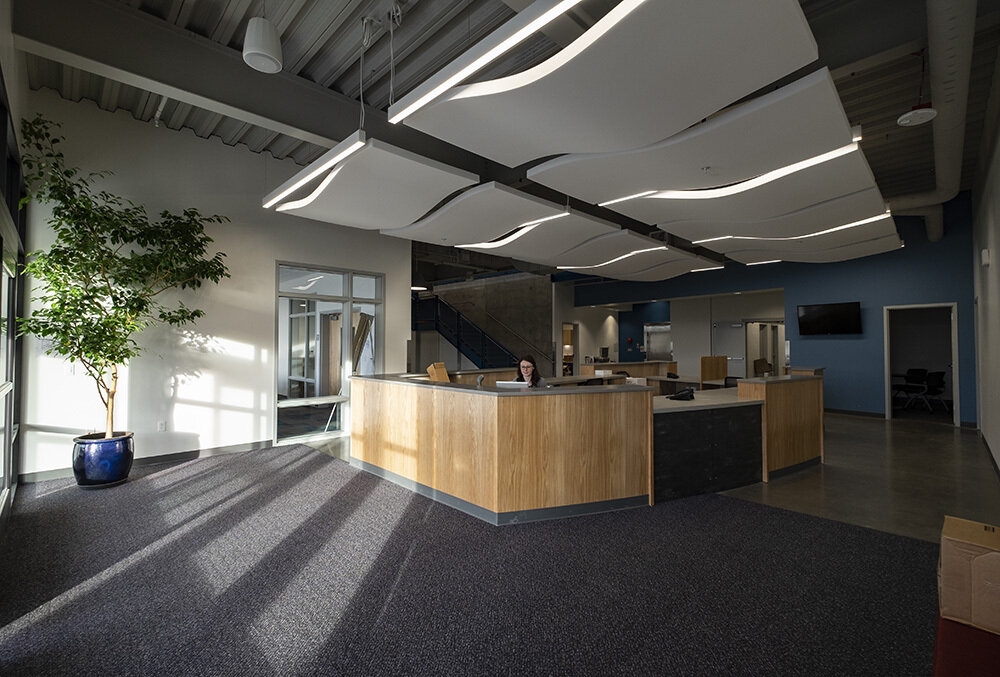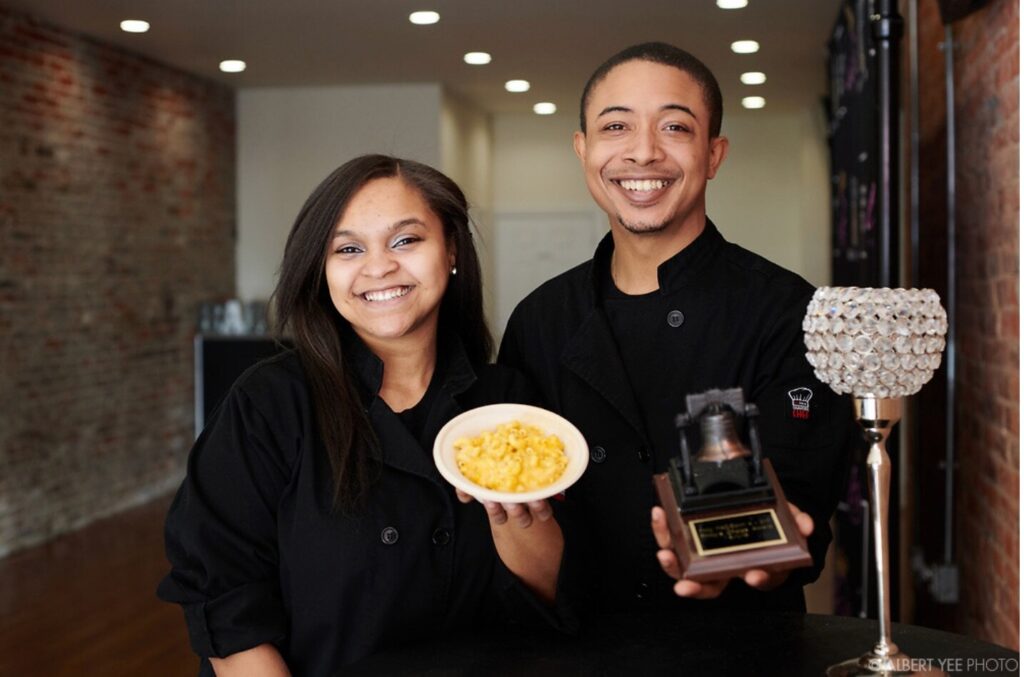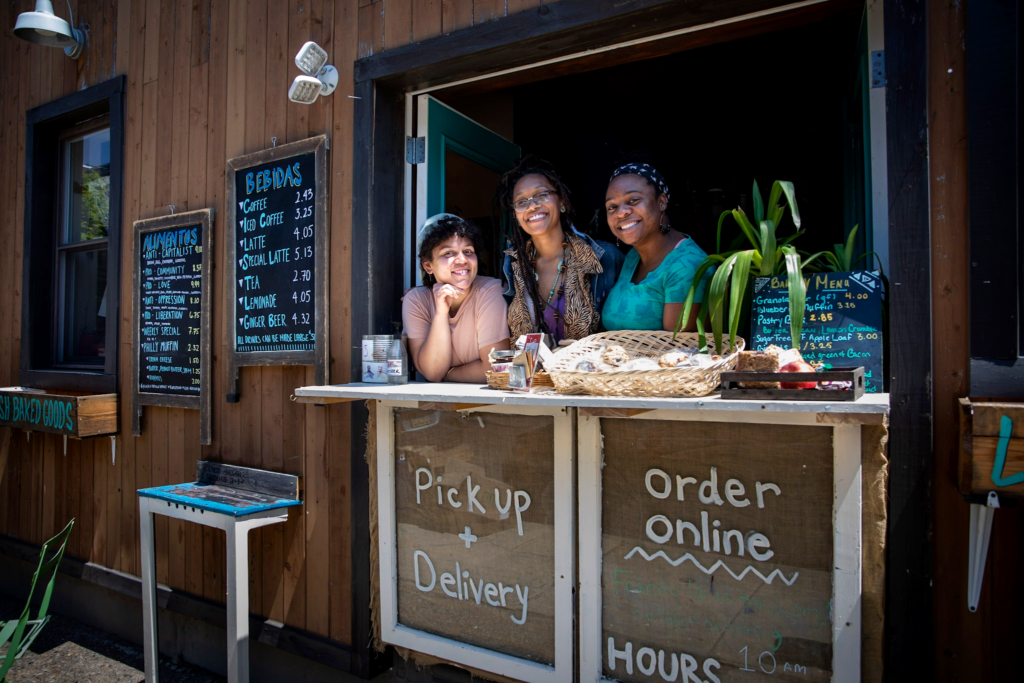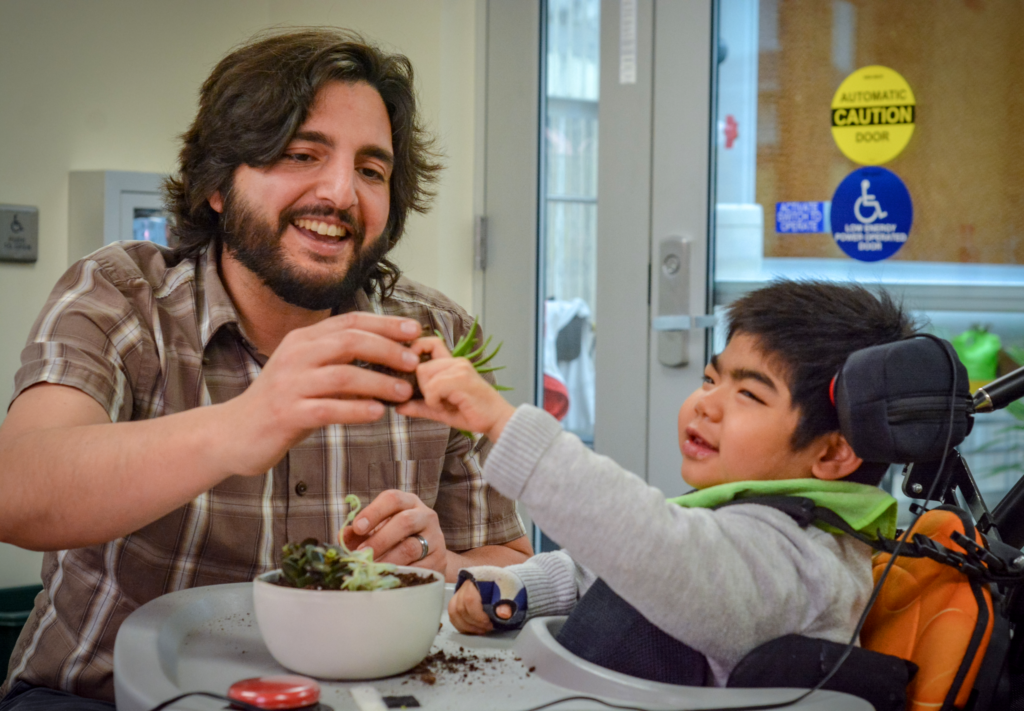Photograph by Tyler Holmberg
Make Your Bed
Story by Alexandra Jones
In a city where arable land can be hard to come by, farmers and students from Sankofa Community Farm are building free garden beds for Southwest Philly residents with aspiring green thumbs.
The farm, located at Bartram’s Garden, has served as a place where neighborhood residents can rebuild relationships with the land and reconnect with traditional African foodways. More than 50 families grow their own produce in its community garden plots, and rows of tomatoes, cabbage, and okra, overlooking the Schuylkill River, are harvested to sell to the community at affordable prices through a weekly market near the garden’s entrance.
A few years ago, Sankofa took its mission of building connections between its community and the land to a new level. In addition to welcoming neighbors onto the farm for educational workshops, youth programs and communal dinners, they’d bring the farm to their neighbors—building low-cost garden beds at the homes of Southwest Philly neighborhoods surrounding Bartram’s.
The idea came straight from community residents who attended their seasonal workshop series—which typically kicks off in March with a session on building your own raised garden beds—and asked if there was a way that the farm could install beds for them.
“The major limiting factors for people are good soil and enough space to be able to grow,” says Ty Holmberg, co-director at Sankofa. “We try as much as we can to listen to the community and what their needs are.”
Holmberg and co-director Chris Bolden-Newsome worked with youth interns to develop a plan, looking to cities like Pittsburgh, where the Phipps Conservatory has installed more than 225 garden beds for citizens through its Homegrown program, for inspiration. Sankofa was awarded a four-year USDA grant that would fund the construction of 20 beds each season, paying for materials and funding local high school students to take on the home garden beds project as part of their internships with Sankofa.
One evangelist for the program is Adriane Parks, who’s planning to grow red cabbage, collard greens and kale for her smoothies in the bed the program installed at her home. Parks lives just across from Bartram’s and serves as a member of its community advisory board. As captain of her block, she’s sharing the bounty of her garden with neighbors, some of whom have taken advantage of the opportunity to get beds of their own.
Growing up in Overbrook Park with a green-thumbed mother, Parks says, she jumped at the opportunity to have a vegetable garden of her own.
“I like to know where my stuff is coming from and what I’m putting in my system,” she says. “Once I had mine, I’m showing it off to people and letting them know that these are the best organic vegetables you can ever get.”
Most years, Holmberg and Bolden-Newsome work with 14 students during the school year and 26 in the summer. The Legacy Crew—seniors who have worked on the farm in past years—lead their peers and coordinate the program, from creating an online application for would-be home gardeners to designing flyers.
In 2020, the farmers had planned to have students execute building and installation of beds on site, led by program alum and entrepreneur Hajjah Glover. She started Glover Gardens, her own home garden installation business, in 2016 as a junior at The Workshop School, a project-based public school in West Philly that engages students to design, build and market everything from Christmas ornaments to robots.
And then the COVID-19 pandemic happened. The raised bed workshop that Glover was set to lead was cancelled, as was all on-farm youth programming. Spring unfurled as usual, and the seedlings the farmers had planted before the crisis kept growing—but the future of the program was uncertain.
After weeks of watching and waiting, Sankofa’s home garden beds program sprung back into action in April.
“We know this is really important for people. Markets are selling out, and nutrition is very important,” says Glover. “This is the perfect time for people to realize they can grow their own food.”
Currently, Glover is supervising the construction and installation of home garden beds for neighborhood applicants. If they can find a safe way to do so, Holmberg says, they hope to get the Legacy Crew involved in installations as well. But for now, students will be participating in Sankofa’s youth programming remotely—a challenge that has presented both a problem and an opportunity for Sankofa’s co-directors.
How can they strengthen students’ relationship to the land and one another when being together in the sacred space of the farm puts them in danger? The same way they’re serving their community: by bringing the garden to them.
This way, students will still be able to experience the joy of growing their own food. Rather than coming to the farm to plant, weed, harvest and cook, the program will provide students with garden beds or planters, soil and seedlings to grow on their own at home. Some parts of the program, like community outreach and surveying clients, will be conducted online, and the farmers are working on a series of instructional videos that youth participants and their families can watch to learn how to plant and care for their new gardens, then prepare the harvest into fresh, healthy meals.
Graduating senior Sadé Black is one of those students. After four years of interning at the farm, she’s disappointed that she probably won’t be able to see the work she and her fellow students did to develop the program come to fruition in person. But the West Philly resident is excited to put what she’s learned at Sankofa into practice with her own garden plot.
In addition to learning about African foodways and culture and other things she didn’t learn in school, “I also got a chance to experience how it feels to actually grow your own produce—how the flavor tastes totally different when you grow yourself,” Black says. “It made me want to teach other people how to do the same thing.”
This fall, she’ll enroll in nursing school at Temple University, where she hopes to combine her background in plants and her medical training to incorporate herbs and plant medicines into her work.
To Holmberg, it’s more important than ever that students are given the tools and knowledge they need to grow fresh food for themselves.
“The idea is that we can do the program in a way that still allows the youth to develop those skills and have food in a food-insecure time,” he says. “The idea is creating real food sovereignty—people are having direct control of their food—and closing that gap so that whatever happens in the future, they’ll have the skills and the space to do it.”
While the program changes to impact its youth participants in new ways, the organizers hope to deepen its involvement with their Southwest P
hilly neighbors surrounding Bartram’s Garden. Rather than building 20 beds per season, as they’ve done in past years, they’re planning to more than double their output in 2020, by installing beds at 50 homes in the area over the next two to three months.
For Holmberg, this new evolution of the program is not only a nimble response to restrictions presented by the COVID-19 pandemic, but also a natural outgrowth of Sankofa’s foundational principles of community partnerships, food sovereignty, access to land and fresh food and youth empowerment.
“At first, it felt daunting. How do we do what we do, given that the best way we know how to build relationships is being physically active in the same space and eating together?” Holmberg says. “To see and have your own plants and watch them grow, being able to have that relationship and figure that stuff out, is a skill that’s really needed in terms of creating self-reliance.”
Southwest Philly residents can fill out the form at bartramsgarden.org/farm to apply for a low-cost garden bed to be built at their home. Residents in other parts of the city can contact Hajjah Glover, at gloversgarden.com, to schedule a consultation.

